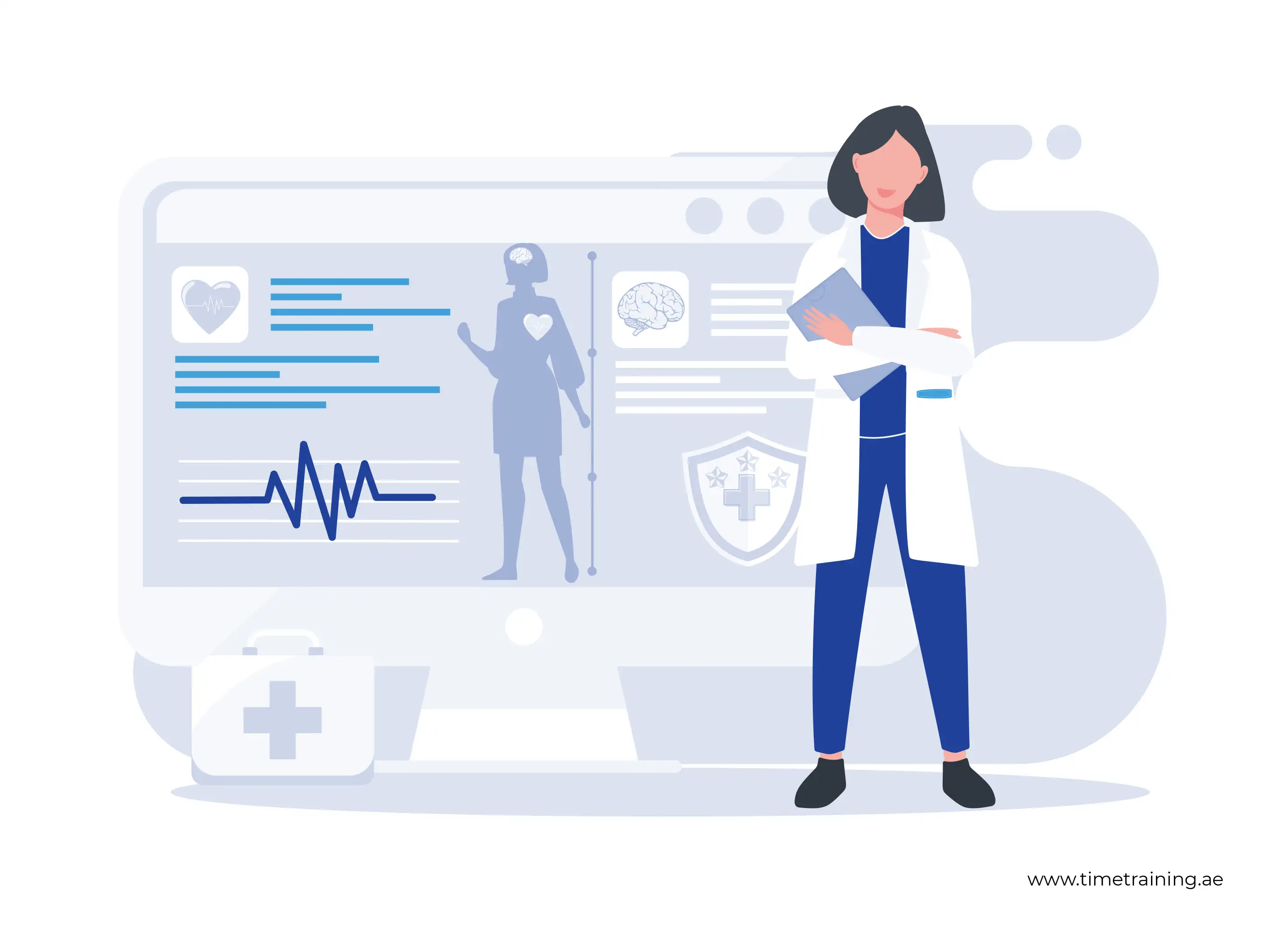Getting certified as a medical coder opens the door to a stable, rewarding career with plenty of growth opportunities—both locally and globally. A medical coder gets data from physicians and converts it into globally identifiable code strings. They read and analyze physicians’ records for information such as patient diagnoses, treatments, services, and equipment. They provide this information to insurance companies in the form of an alphanumeric code to ensure payments are distributed efficiently and precisely.
Medical coding is an excellent career choice for self-motivated, hardworking individuals who are dedicated to making a difference in the healthcare industry. Whether you're just starting out in your career or looking for a move that will allow you to progress professionally, here are five distinct advantages of this field of work.
5 Reasons why Medical Coding is the Right Career Choice for You.
Here are five key reasons why pursuing a Medical Coding certification could be the right career move for you:
-
High Demand for Medical Billers and Coders
-
Medical Coding Certification Get You Job-Ready in Less Than a Year
-
Flexibility in hours and lifestyle.
-
Opportunities for Career Advancement
-
Ongoing Learning Opportunities
Let’s take a closer look at why getting a Medical Coding certification could be the perfect choice for you:
1. High Demand for Medical Billers and Coders
The COVID-19 pandemic hit the healthcare industry hard, like many others, but one thing that has remained strong is the demand for medical billers and coders. This need is only expected to grow thanks to a few key factors:
-
A Growing Senior Population: As more people enter their senior years, the demand for medical care rises. This creates a greater need for medical billers and coders to manage the increased volume of patient records.
-
Advancing Technology: With more healthcare records going digital, there is an ever-increasing need for skilled professionals who can navigate and manage these systems.
The Bureau of Labor Statistics (BLS) provides some insights:
-
9% Growth: The job market for medical records and health information specialists—including medical billers and coders—is expected to grow by 9% from 2019 to 2029, faster than average for most occupations.
-
34,300 New Jobs Every Year: That is how many new positions are projected to open annually in this field as demand continues to rise.
All these factors show that the demand for medical billers and coders isn’t just a passing trend—it’s a long-term need driven by demographic changes and technological advancements. If you’re in this field or considering entering it, there are several opportunities ahead.
2. Medical Coding Certification Gets You Job-Ready in Less Than a Year
Let's face it: most medical professions demand many years of advanced study and training. The good news for medical coders is that you can finish the medical billing and coding certification program for an entry-level position in less than a year!
Those seeking an associate's degree must study for a minimum of two years. A bachelor's degree in medical billing and coding typically takes four years. Earning your diploma in a short period is a significant advantage because it allows you to potentially enter the profession sooner and begin using your valuable talents in a rewarding career.
3. Flexibility in hours and lifestyle.
Many professionals agree that having a flexible schedule is key to maintaining a healthy work-life balance. For medical coders, this flexibility often comes with the chance to work from home. While most coders start out working in an office, remote work usually becomes an option once you’ve proven your skills and job proficiency.
The perks of working from home are clear:
-
Save Time and Money: Without the daily commute, you’ll save time and money—giving you more freedom in your day.
-
More Personal Time: Working from home can allow you to explore hobbies and interests outside of work, helping to enrich your life beyond your job.
-
Set Your Own Hours: The ability to set your own schedule fosters a sense of responsibility and independence while also helping prevent burnout.
Ultimately, the flexibility that comes with working from home makes it a great choice for many medical coders, offering a better work-life balance and a more fulfilling career.
4. Opportunities for Career Advancement
Competitive salaries in the healthcare industry aren’t just reserved for doctors and nurses. Medical coders are also highly valued and well compensated for their expertise. Medical coding salaries tend to be quite attractive. On average, medical coders in the U.S. earn around $50,059 per year.
That being said, your salary can vary based on a few factors:
-
Location and Business: Depending on where you work and the company you’re with, you could earn more than the average.
-
Experience and Education: Your level of experience and any additional education or certifications you’ve earned can also impact how much you’re paid.
So, while medical coding is rewarding in many ways, it also offers a solid paycheck, with plenty of room to grow as you gain experience and advance your skills.
5. Ongoing Learning Opportunities
As your career grows, you might want to specialize and take your skills to the next level. Pursuing additional certifications is a great way to do this, and it could also boost your earning potential and open up more career opportunities. Here are a few paths you could explore:
-
Certified Pediatrics Coder: Focus on coding for pediatric care, working with medical records related to children's health.
-
Certified Cardiology Coder: Specialize in coding for heart-related services and medical procedures.
-
Certified Professional Coding Instructor: Share your expertise by teaching and mentoring new medical coders.
-
Certified Professional Compliance Officer: Help healthcare providers stay compliant with regulations and coding standards.
-
Certified Documentation Expert Outpatient Specialist: Ensure outpatient medical records were complete and accurate.
Pursuing these specialized roles not only keeps your job fresh and exciting but also offers the chance to continue learning and advancing as a professional.
Medical Coding vs. Medical Billing: What’s the Difference?
If you're exploring a career in healthcare administration, you’ve probably heard of medical coding and medical billing. While they work closely together, they have different roles.
Medical Coding is all about translating healthcare services and diagnoses into standardized codes. Coders review medical records and assign the correct codes, which are essential for insurance claims.
Medical Billing takes those codes and turns them into insurance claims to ensure that healthcare providers get paid. Billers submit, track, and follow up on claims, and sometimes work with patients on any remaining balances.
In short, coders focus on accuracy in the details, while billers focus on making sure the provider gets reimbursed. Both roles are key to keeping the healthcare system running smoothly.
Medical Coding Jobs in Abu Dhabi: Opportunities & Salary Insights
If you're thinking about a career in medical coding and considering the UAE as a job destination, you're on the right track! With the country's thriving healthcare sector and stringent insurance rules, qualified medical coders are in high demand.
Where Can You Work As a Medical Coder?
Medical coders are the backbone of healthcare documentation, ensuring that treatments, diagnoses, and procedures are correctly recorded for billing and insurance purposes. In the UAE, you can find medical coding job opportunities in:
-
Hospitals & Clinics – Both government and private institutions
-
Medical Insurance Companies – Managing claims and approvals
-
Healthcare Consulting Firms – Assisting with compliance and audits
-
Medical Billing Companies – Handling revenue cycle management
Most employers in the UAE prefer certified coders with credentials like CPC (Certified Professional Coder), CCS (Certified Coding Specialist), or CCA (Certified Coding Associate) from AAPC or AHIMA. Experience with ICD-10, CPT, and HCPCS coding systems is also a big plus!
What Can You Expect to Earn in Medical Coding?
Medical coding salaries in the UAE vary depending on experience, location, and certifications. Here’s what you can expect:
-
Entry-level (0-2 years): AED 4,000 to AED 6,500/month
-
Mid-level (2-5 years) – AED 7,000 to AED 10,000/month
-
Experienced Coders (5+ years) – AED 11,000 to AED 15,000/month
-
Medical Coding Auditors/Specialists – AED 15,000 to AED 20,000/month
Salaries in Dubai and Abu Dhabi may be higher due to the high cost of living and the presence of elite hospitals. Many employers also offer benefits like health insurance, paid annual leave, and even flight tickets for home visits.
What’s Next in Your Medical Coding Career
Medical coding is not just a job—it’s a career with long-term growth! With experience and additional certifications, you can step into roles like:
-
Medical Coding Auditor – Reviewing and verifying coding accuracy
-
Revenue Cycle Manager – Overseeing financial aspects of healthcare services
-
Health Information Manager – Handling patient records and compliance
-
Medical Coding Trainer – Teaching new coders and training teams
Start Your Medical Coding Journey with Confidence
If you’re serious about building a stable and rewarding career in medical coding, getting certified is the best step forward. With healthcare constantly evolving, skilled coders are in high demand—and that’s where you come in!
At Time Training Center, we don’t just teach medical coding; we prepare you for real-world success. Our AAPC-certified instructors bring years of industry experience, ensuring you gain both the knowledge and practical skills needed to excel. Plus, with our structured training and exam-focused coaching, you'll be fully equipped to ace your certification and step into a thriving career.
So, why wait? Invest in your future today! Join our Medical Coding Course in Abu Dhabi and take the first step towards a career filled with opportunities. Contact us now to get started!
 +971 2 6713828
+971 2 6713828




